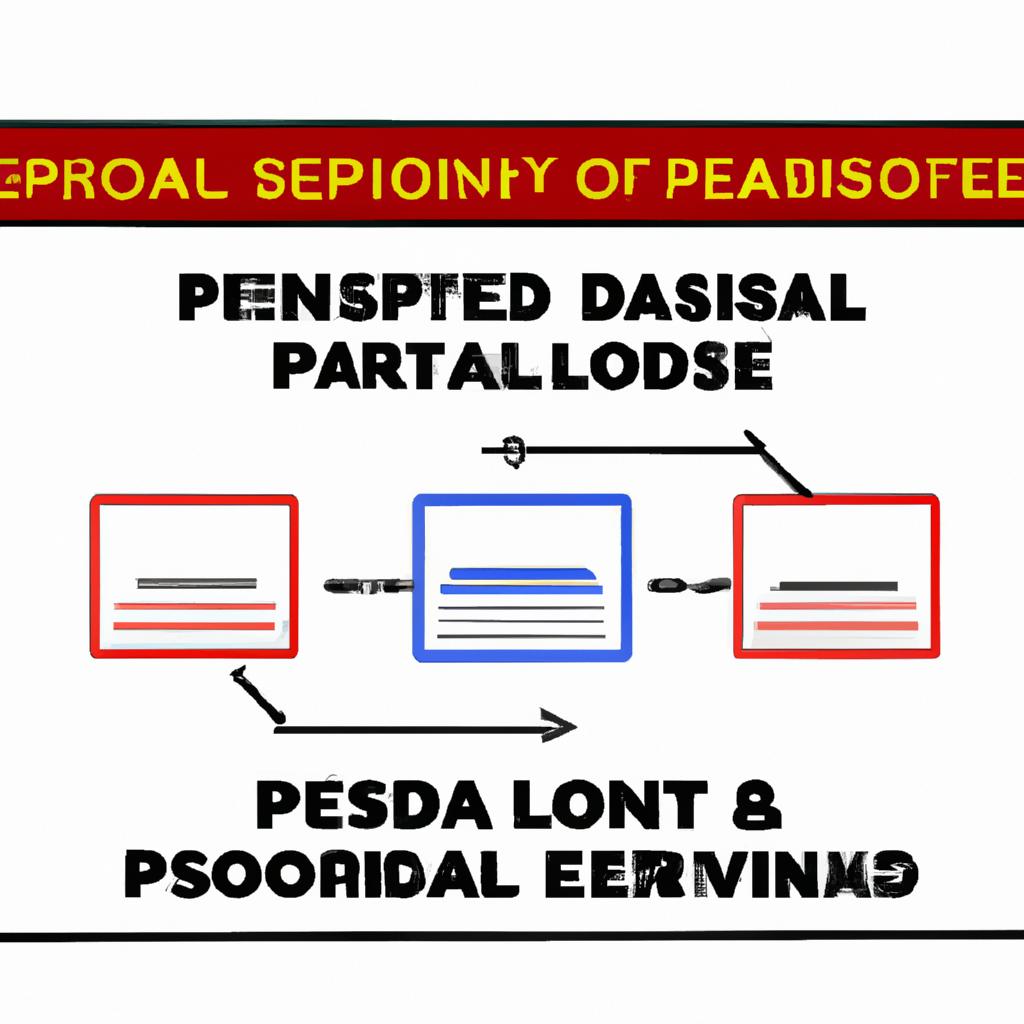In the unfortunate event of a loved one’s passing, the immediate focus is often on mourning and making arrangements for their memorial service. However, it is equally important to address practical matters, such as handling their mail. Failure to properly terminate mail services can result in sensitive information falling into the wrong hands and can create unnecessary complications for the deceased individual’s estate. In this article, we will provide guidance on how to effectively stop mail after death, ensuring that the deceased’s personal information remains secure. As experienced legal professionals at Morgan Legal Group in New York City, we understand the importance of these procedures and are here to offer our expertise in navigating this aspect of the estate settlement process.
Ceasing Mail Delivery Following the Passing of a Loved One
In the unfortunate event of a loved one passing away, it is crucial to handle their mail delivery properly to avoid any sensitive information falling into the wrong hands. is a necessary step to safeguard their personal information and prevent identity theft. To help you navigate this process smoothly, we have compiled a comprehensive guide on how to stop mail after death.
Firstly, notify the United States Postal Service (USPS) of the individual’s passing by completing a mail-forwarding form. This form can be submitted online or at your local post office. Additionally, you may need to provide a copy of the death certificate and proof of your relationship to the deceased. It is also advisable to inform any relevant financial institutions, subscription services, and utility companies of the individual’s passing to update their records accordingly. By taking these proactive measures, you can ensure that the deceased’s mail is handled respectfully and securely.
Navigating the Postal Service’s Deceased Recipient Process
In times of loss, managing the affairs of a deceased loved one can be a challenging process. When it comes to , it is important to take the necessary steps to stop mail after death. This ensures that sensitive information does not fall into the wrong hands and that the deceased individual’s affairs are handled with care and privacy.
To stop mail after death, follow these essential steps:
- Contact the Postal Service: Notify the Postal Service of the individual’s passing to request a stop on their mail delivery. Provide the necessary information, such as the deceased recipient’s name and address, to ensure a smooth and efficient process.
- Update mailing lists: Inform relevant companies and organizations of the individual’s passing to remove their name from mailing lists. This helps prevent unwanted mail from being sent to the deceased individual’s address and avoids potential identity theft issues. Remember, taking proactive steps to stop mail after death is crucial in protecting the privacy and security of the deceased individual’s personal information.

Utilizing Legal Documentation to Halt Mail for a Deceased Individual
To halt mail for a deceased individual, it is crucial to utilize legal documentation to notify relevant parties of the individual’s passing. One effective way to do this is by obtaining a death certificate for the deceased individual. This document is a vital piece of evidence that serves as proof of the person’s death. By submitting a copy of the death certificate to the United States Postal Service (USPS), you can request to stop mail delivery to the deceased individual’s address.
Another important legal document to use in this situation is a Letter of Testamentary or Letters of Administration. These are court-appointed documents that grant the executor or administrator of the deceased individual’s estate the legal authority to manage their affairs. By providing a copy of these documents to the USPS, you can demonstrate your legal authority to halt mail delivery for the deceased individual. By following these legal steps and utilizing the appropriate documentation, you can effectively stop mail for a deceased individual and prevent any sensitive information from falling into the wrong hands.
| Name | Date of Death | Executor |
|---|---|---|
| John Smith | January 1, 2021 | Jane Doe |
| Emily Johnson | March 15, 2021 | Michael Brown |

Partnering with Professionals for Efficient Management of Deceased’s Mail
is essential in ensuring that sensitive information is handled securely and effectively. By working with experienced professionals like the team at Morgan Legal Group, you can rest assured that all mail addressed to the deceased will be properly managed and handled with care.
Our team at Morgan Legal Group understands the importance of promptly stopping mail after a loved one’s passing to prevent any potential identity theft or further emotional distress. We will work diligently to notify relevant organizations, update mailing lists, and redirect mail to the appropriate parties. Partnering with us will ensure that this process is handled efficiently and effectively, giving you peace of mind during this difficult time. Don’t hesitate to reach out to us for assistance in managing your deceased loved one’s mail.
Q&A
Q: What happens to a deceased person’s mail?
A: Mail addressed to a deceased person will continue to be delivered to their address unless steps are taken to stop it.
Q: How can I stop mail after the death of a loved one?
A: You can stop mail by contacting the USPS and filling out a form to forward or stop mail for a deceased person.
Q: What information do I need to provide to stop mail for a deceased person?
A: You will need to provide the deceased person’s name, date of death, and address to stop their mail.
Q: Are there any additional steps I need to take to ensure all mail is stopped?
A: It is also recommended to notify organizations that the deceased person was affiliated with, such as banks or subscription services, to stop mail from those sources as well.
Q: Is there a time frame for stopping mail after someone’s death?
A: It is best to stop mail as soon as possible after a person’s death to avoid any issues with sensitive information being delivered to the wrong address.
Q: Can I stop mail online or do I need to visit a post office?
A: You can stop mail online through the USPS website or by visiting your local post office in person to fill out the necessary paperwork.
Closing Remarks
In conclusion, by following the steps outlined in this guide, you can navigate the process of stopping mail after the passing of a loved one with ease and efficiency. Remember to notify the appropriate parties, gather necessary documentation, and consider opting for a mail forwarding service to ensure a smooth transition. By taking these proactive measures, you can alleviate some of the administrative burdens during a difficult time. Thank you for reading and we hope this article has been helpful in navigating this challenging process.
 Title: How to Stop Mail After Death: A Comprehensive Guide
Title: How to Stop Mail After Death: A Comprehensive Guide
Losing a loved one is a difficult and emotional time in anyone’s life. Amidst the grieving and arrangements, there are also practical matters that need to be addressed, such as stopping the deceased’s mail from being delivered. While it may seem like a small task, it is essential to take care of it to avoid any potential complications or identity theft. In this article, we will discuss everything you need to know about stopping mail after death and the steps to take to ensure a smooth process.
Understanding the Process of Mail Delivery
Before diving into the steps to stop mail after death, it is crucial to understand how the postal system works. When someone dies, their mail is still delivered as usual, and the mailbox continues to receive letters and packages. This process is known as the “decedent’s mail,” and it can lead to sensitive information being left unattended, putting the deceased’s family at risk.
Moreover, if the deceased lived alone, their mail can pile up in their mailbox, leading to possible theft or the risk of identity theft. Delaying the process of stopping mail after death can have severe consequences and make it challenging to address the issue in the future. Therefore, it is crucial to act promptly and take the necessary steps to stop mail delivery after a loved one’s passing.
Notify the Necessary Parties
Once you have processed the passing of a loved one and have the legal documentation to prove their death, the first step is to notify the necessary parties. These parties include the Social Security Administration, banks and financial institutions, credit card companies, and the United States Postal Service (USPS).
Notifying the Social Security Administration is essential to stop any social security payments from being deposited into the deceased’s account and to avoid any legal complications. Similarly, informing the banks, credit card companies, and other financial institutions ensures that any active accounts under the deceased’s name are closed, preventing any unauthorized activity.
Next, contact the USPS to place a hold on the decedent’s mail. This will ensure that all mail addressed to the deceased will be held at their local post office and not delivered to their address. It is also essential to request that the USPS stop sending any junk or bulk mail to the deceased’s address, as it can quickly fill up the mailbox and continue to accumulate unnecessary clutter.
Appoint a Personal Representative
If the deceased has designated a personal representative or executor of their estate, notify them of their responsibilities regarding stopping mail delivery. This person will have the authority to process the deceased’s mail and any other legal matters on their behalf. It is crucial to provide them with all the relevant documents, such as the death certificate and legal proof of their appointment as the personal representative.
Postal Service Forms and Requests
To stop mail delivery after death, you will have to fill out various forms and submit specific requests. These include:
1. Mail Forwarding – To redirect mail addressed to the deceased to a new address, fill out the Change of Address form (PS Form 3575). The personal representative or executor of the estate can fill out this form on the deceased’s behalf with proper documentation.
2. Deceased Do Not Contact List – The USPS also offers a Deceased Do Not Contact list, which will stop all direct mail advertisements addressed to the deceased. It is essential to sign up for this service to avoid any unwanted mail or solicitations.
3. Temporary Hold – If there are matters that require further legal action or settlement, you can request a temporary hold on the deceased’s mail to avoid any complications. This can be done with the temporary mail hold form provided by the USPS.
4. USPS Mail Disposition – If the deceased has passed away while traveling, and you are unable to retrieve their mail physically, you can request the USPS to dispose of it. For this purpose, you will have to fill out the USPS Mail Disposition form.
5. Automated Payment Discrepancies – It is common for individuals to have automated payments for bills and subscriptions. In the case of the deceased, it is vital to contact these companies and inform them of the passing and cancel any payments immediately. This will prevent any unnecessary expenses from being charged to the deceased’s account.
Additional Tips and Considerations
Other things to keep in mind when dealing with mail after death include:
1. Check the deceased’s mail regularly – If the deceased shared their mailbox with someone else or had neighbors collecting their mail, it is crucial to check regularly. This will ensure that any important or time-sensitive mail is not missed.
2. Notify utility companies – If the deceased had any bills or accounts under their name, contact the respective utility companies to stop service immediately. This includes electricity, gas, water, and any other services that were registered under the deceased’s name.
3. Contact credit reporting agencies – To avoid any potential identity theft, inform credit reporting agencies about the passing of the deceased and request a credit freeze on their account.
Final Thoughts
Stopping mail after death may seem like a daunting task, but it is a necessary step to protect the deceased’s identity and avoid any potential legal complications. By understanding the process and taking the appropriate steps, you can ensure that mail delivery is stopped promptly and the decedent’s personal information is safeguarded. It is also essential to have a designated personal representative or executor to handle the necessary paperwork and documentation. If you are unsure about the process, seek the help of legal professionals or contact the USPS for further guidance.

